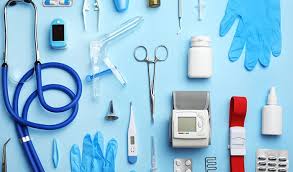Medical equipment suppliers are a crucial component of the healthcare industry, providing essential tools and devices that support medical professionals in delivering quality care. Ensuring that hospitals and clinics are well-equipped with the latest technology and supplies can significantly impact patient outcomes and the efficiency of healthcare services.
The role of medical equipment suppliers is not only to provide the products but also to offer support and maintenance services that ensure the long-term functionality of these vital tools.
The Role of Medical Equipment Suppliers
Medical equipment suppliers fulfil various roles, from sourcing the most advanced technology to providing training and support for healthcare professionals. They bridge the gap between manufacturers and healthcare providers, ensuring that equipment is accessible and affordable to those who need it most.
Suppliers also play a part in advising healthcare facilities on the best equipment choices based on their specific needs and budget constraints. This guidance can save facilities money and improve the quality of care they deliver to patients.
Types of Medical Equipment Provided
The range of equipment provided by medical suppliers is broad and can include diagnostic devices, surgical instruments, life support systems, and patient monitoring technologies. Other products, such as laboratory equipment, hospital beds, and sterilisation tools are also commonly sourced through these suppliers.
By offering a comprehensive range of products, medical equipment suppliers ensure that healthcare facilities are fully prepared to manage a wide variety of patient needs and medical conditions.
Ensuring Quality and Compliance
Quality assurance and compliance with industry standards are essential responsibilities of medical equipment suppliers. They must ensure that all equipment meets regulatory standards and certifications, which guarantees safety and efficacy. Suppliers must continuously monitor their products for any updates in compliance requirements and ensure that their clientele is informed about these changes.
By providing equipment that meets high safety and quality standards, suppliers help healthcare providers maintain trust with their patients and uphold their reputations.
Maintaining and Servicing Equipment
The maintenance and servicing of medical equipment are as important as the initial purchase. Suppliers often provide service contracts or maintenance packages that include regular check-ups, repairs, and updates to extend the equipment’s lifespan.
Proper maintenance ensures that medical devices function correctly and consistently, which is crucial for optimal patient care. Suppliers may also offer training for healthcare professionals to ensure they can operate the devices safely and effectively.
Technological Advancements and Innovations
Technological advancements in the medical field are continually evolving, and medical equipment suppliers must stay informed about the latest innovations. By doing so, they can provide healthcare facilities with cutting-edge equipment that improves patient diagnostics and treatment outcomes.
This constant adaptation to new technologies ensures that healthcare providers can deliver the best care possible, using the most efficient tools available.
The Economic Impact
The economic implications of the medical equipment supply chain are significant. Suppliers support not only healthcare facilities but also contribute to the broader economy by creating jobs and supporting technological advancements. They help drive competition and innovation within the medical industry, which can lead to lower costs and better accessibility to high-quality equipment.
Challenges Faced by Medical Equipment Suppliers
Despite their critical role, medical equipment suppliers face various challenges, such as regulatory changes, supply chain disruptions, and market competition. Navigating these challenges requires strong strategic planning and the ability to adapt quickly to shifting market conditions.
Suppliers must also manage relationships with manufacturers and healthcare facilities, balancing both sides’ needs to ensure smooth operations.
The Future of Medical Equipment Supply
Looking ahead, medical equipment suppliers will continue to play a vital role in the healthcare industry. As technology advances and healthcare demands grow, suppliers will need to focus on sustainability, digital innovations, and personalised customer service to meet the evolving needs of healthcare providers.
Investing in research and development will be key for suppliers to maintain a competitive edge and continue supporting healthcare facilities effectively.

